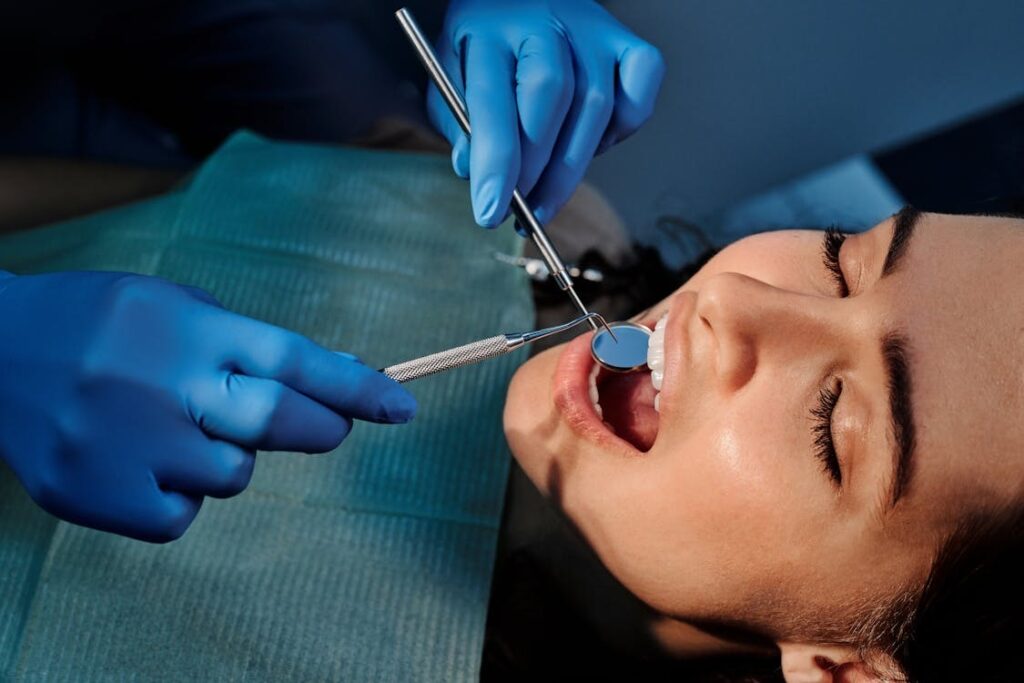Fresh breath is more than a social courtesy it’s a reflection of your oral health. Dentists often emphasize that persistent bad breath, or halitosis, can signal underlying issues such as gum disease, dry mouth, or poor hygiene habits. Fortunately, maintaining fresh breath is achievable with a few consistent practices and smart product choices. These dentist-recommended tips go beyond masking odors and focus on promoting a clean, balanced oral environment that supports long-term freshness and confidence.
Brush and Floss Consistently
The foundation of fresh breath starts with thorough brushing and flossing. Brushing twice a day removes plaque and food particles that contribute to odor, while flossing clears debris from between teeth where bacteria thrive. Without regular cleaning, these areas become breeding grounds for sulfur-producing bacteria, which are responsible for unpleasant smells. Dentists recommend using a soft-bristled toothbrush and fluoride toothpaste, and replacing your brush every three months. Daily flossing is equally important to prevent buildup and maintain gum health, which directly impacts breath quality.
Clean Your Tongue
The tongue is often overlooked in oral hygiene routines, yet it harbors a significant amount of bacteria. Its textured surface traps food particles and dead cells, which can lead to foul-smelling compounds if not removed. Using a tongue scraper or brushing your tongue gently with your toothbrush can dramatically improve breath freshness. This simple step takes less than a minute and can make a noticeable difference. Dentists often point out that cleaning the tongue is one of the most effective ways to reduce halitosis and improve overall oral cleanliness.
Stay Hydrated Throughout the Day
Dry mouth is a common cause of bad breath. Saliva plays a crucial role in washing away bacteria and neutralizing acids in the mouth. When saliva production decreases due to dehydration, medications, or mouth breathing odor-causing bacteria can flourish. Drinking water regularly helps maintain moisture and supports the natural cleansing process. Dentists also recommend chewing sugar-free gum or sucking on xylitol mints to stimulate saliva flow if dry mouth is a frequent issue. Staying hydrated is a simple yet powerful way to keep your breath fresh and your mouth healthy.
Use Alcohol-Free Mouth Rinses
Mouthwash can be a helpful addition to your routine, but not all formulas are created equal. Alcohol-based rinses may temporarily mask odors but can also dry out the mouth, exacerbating bad breath over time. Dentists suggest choosing alcohol-free options that contain antibacterial ingredients like chlorhexidine or cetylpyridinium chloride. These help reduce plaque and bacteria without compromising moisture levels. Incorporating a rinse after brushing and flossing can enhance your oral hygiene and provide a lasting sense of freshness.
Address Dietary Habits
What you eat has a direct impact on your breath. Foods like garlic, onions, and spicy dishes contain volatile compounds that can linger in the mouth and bloodstream, affecting breath for hours. While these foods are not harmful, being mindful of their timing especially before social or professional interactions can help. Dentists also recommend limiting sugary snacks and acidic beverages, which feed bacteria and contribute to plaque buildup. Incorporating crunchy fruits and vegetables like apples and carrots can naturally clean teeth and stimulate saliva, promoting a fresher mouth.
Keep Dental Appointments Regular
Professional cleanings are essential for maintaining fresh breath. Dentists and hygienists remove tartar and plaque that at-home care may miss, especially in hard-to-reach areas. These visits also allow for early detection of gum disease, cavities, or other conditions that may cause persistent odor. Most dental professionals recommend cleanings every six months, though some individuals may benefit from more frequent visits. Staying proactive with dental care ensures that your breath stays fresh and your oral health remains in top condition.
Use a Breath-Freshening Product When Needed
Sometimes, you need a quick solution between brushings or on the go. In these moments, a high-quality mouth spray can offer instant freshness and confidence. Look for sprays that contain natural antibacterial ingredients and avoid artificial fragrances that only mask odors. Dentists often recommend using such products as a supplement—not a substitute for a solid oral hygiene routine. A discreet, travel-friendly mouth spray can be a helpful tool for maintaining freshness throughout the day, especially after meals or long conversations.
Conclusion
Fresh breath is a reflection of consistent care and smart choices. By brushing and flossing daily, cleaning your tongue, staying hydrated, and using dentist-approved products, you can maintain a clean, balanced oral environment. Regular dental visits and mindful eating habits further support long-term freshness and overall oral health. With these tips in place, you’ll not only enjoy better breath but also greater confidence in every interaction.


